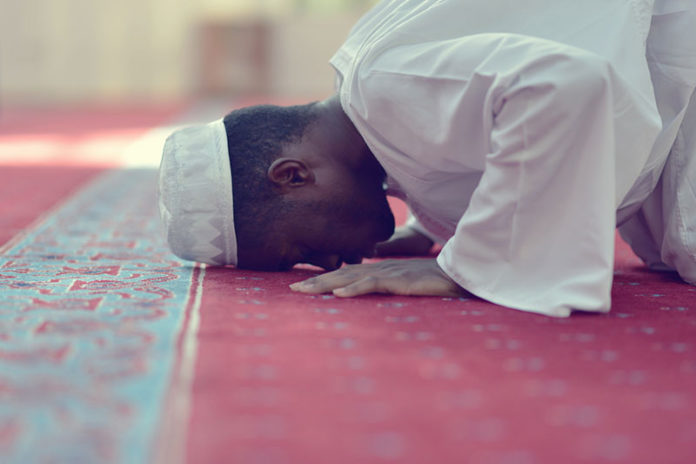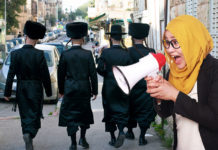Continuing an Obama practice of punishing American businesses that don’t accommodate Muslims, the Trump administration is suing the nation’s largest bus carrier for refusing to let a female driver wear a long, loose-fitting robe symbolic of Islamic piety.
The flowing garment, known as an abaya, looks like a frock or cloak and is designed to cover a woman’s entire body in public. Last year women in Saudi Arabia, where Sharia law mandates the Islamic robes, launched a protest against the abaya.
Here in the United States, a nationally recognized company is being sued by the government over a uniform dispute that bans a Muslim driver in Baltimore from wearing the vestment behind the wheel. The offender is Dallas-based Greyhound Lines, the country’s largest provider of intercity bus transportation.
The government is accusing Greyhound of violating the Title VII of the Civil Rights Act of 1964, which prohibits discrimination based on religion and requires employers to reasonably accommodate the employee, or job applicant’s, sincerely held religious beliefs. This month the Equal Employment Opportunity Commission (EEOC), the federal agency that enforces the nation’s workplace discrimination laws, filed a complaint against Greyhound in U.S. District Court for the District of Maryland, Baltimore Division. The agency seeks back pay, reinstatement and compensatory damages for the unnamed Muslim woman and punitive damages for Greyhound.
“The driver was able to perform her duties safely while wearing her religious garb, but Greyhound unjustly refused to accommodate her religious beliefs,” said EEOC Regional Attorney Debra M. Lawrence in a statement announcing the lawsuit. “No employee should be forced to choose between practicing her sincerely held religious beliefs and earning a living.”
A district director for the agency is quoted saying that “as our workplaces become more diverse, employers should review their policies and practices, including making reasonable adjustments to dress codes, in order to accommodate the religious beliefs of applicants or employees, unless it would be an undue hardship.”
During the Obama administration the EEOC took a special interest in protecting followers of Islam and the agency dedicated a lot of resources to pursue companies that refused to change longtime policies for Muslim workers. The EEOC sued a clothing retailer with a policy against head covers of any kind for religious discrimination because it would not allow a female employee at one of its stores to wear a head scarf as required by Islam.
An Obama-appointed federal judge in northern California handed the administration a victory, ruling that the Muslim woman’s civil rights were violated. The EEOC also helped two Muslim truck drivers get a hefty cash settlement after being fired for refusing to transport alcohol because it violated their religious beliefs. The judge in that case, an Obama appointee in Illinois, ruled in favor of the Muslims and the Peoria-based trucking company had to pay $240,000 in punitive damages.
Following the San Bernardino terrorist attacks in late 2015, the Obama EEOC issued a warning regarding workplace discrimination “against individuals who are, or perceived to be, Muslim or Middle Eastern.”
Deep into its first term, the Trump administration has failed to put an end to the policies. Last year the EEOC got a $90,000 settlement for a Muslim man who was not accommodated by a southern California security company that refused to modify its longtime grooming standards.
It constituted religious discrimination, according to the government, because the Muslim employee requested the grooming exemption in accordance with his “sincerely held religious beliefs.” The settlement also forced the company, Allied Universal, to hire an equal employment monitor and revise its religious accommodation policies.
The Trump EEOC has kept with the Obama administration’s leftist agenda in other religious rights cases. A few years ago the agency sued a grocery chain for religious discrimination over the dreadlocks of a Rastafarian. Followers of the “Afrocentric” religion wear long, matted and knotted hair and smoke marijuana (“the spiritual use of cannabis”).
There is no formal, organized leadership in Rastafarianism which makes it difficult to accept as an official religion protected by federal law. It was born in the slums of Jamaica and followers must have dreadlocks, long clumps of ungroomed hair symbolizing the mane of the Lion of Judah. Rastafarians believe Haile Selassie, the former emperor of Ethiopia, is God and that he’ll help blacks living in exile as a result of the slave trade return to Africa.






























